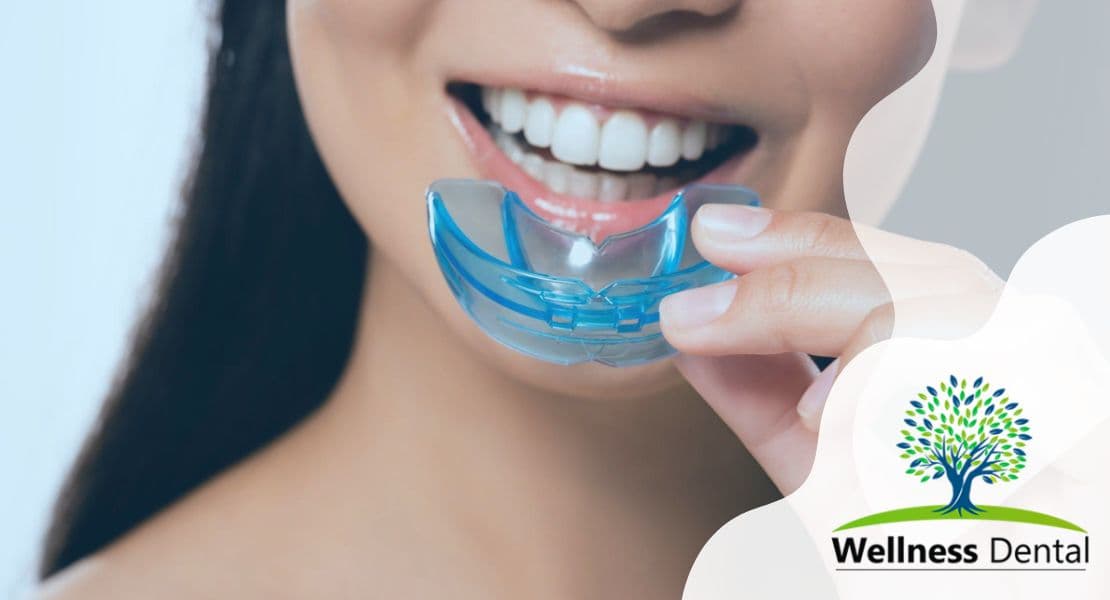Save on your full denture cost today by understanding the different options available to you. Full dentures can vary in cost depending on the level of customization and materials used.
How much do dentures cost?
Basic dentures are the most affordable option, typically costing between $600 and $1200 per arch. These dentures are made using a standard resin base and basic false teeth. While they are more budget-friendly, they may not provide the same level of comfort and aesthetics as higher-end options.
Mid-range dentures, priced between $1200 and $3000 per arch, offer improved durability and natural-looking teeth. These dentures may include additional features such as a metal framework for added strength.
Premium dentures are the most expensive option, ranging from $3000 to $5000 per arch. These dentures are customized to fit your mouth perfectly and often utilize high-quality materials for a more realistic appearance.
Insurance coverage can help offset the cost of full dentures, with many dental insurance plans offering partial coverage. It is important to review your specific plan to understand the extent of your coverage.
For those looking for a more permanent solution, dental implants can be added to support the dentures. However, this will increase the overall cost as implants typically range from $1000 to $5000 per tooth.
In addition to the denture and implant costs, there may be additional expenses such as tooth extractions, oral health examinations, and any necessary additional procedures.
To save on your full denture cost, explore financing options offered by dental offices or dental plans that may cover a portion of the expenses. By understanding the different denture types and associated costs, you can make an informed decision for your dental care.
What additional denture costs are there?

When considering getting dentures, it is important to be aware of the additional costs that may be associated with the process. These costs can vary depending on the individual’s oral health and the type of dentures chosen.
Firstly, oral exams are necessary to assess the condition of the teeth and gums before the denture process begins. This allows the dentist to determine if any additional procedures, such as tooth extraction, are needed.
Tooth extraction is another potential additional cost. If natural teeth are present, they may need to be extracted before dentures can be fitted. The cost of tooth extraction can vary depending on the complexity of the procedure and whether anesthesia is required.
Diagnostic casts and panoramic X-rays may also be needed to ensure accurate measurements and impressions for the dentures. These imaging procedures help the dentist create a customized fit for the dentures.
Tissue conditioning is another potential additional cost. This involves placing temporary soft liners on the dentures to improve their fit and comfort during the healing process.
After the dentures are fitted, adjustments may be necessary to ensure they fit properly and comfortably. These adjustment appointments may incur additional costs.
Denture relining is another potential cost. Over time, the shape of the mouth may change, requiring the dentures to be relined for a better fit.
It is important to note that these additional costs can vary depending on the individual’s specific needs and the dental office where the procedures are being performed. It is recommended to consult with a dentist and dental insurance plan to get a better understanding of the potential additional costs and explore financing options if needed.
Are dentures worth it?
Dentures are a popular dental treatment option for individuals who have missing teeth or need to have their natural teeth extracted. They come in various types, including partial dentures, complete dentures, traditional dentures, and implant-supported dentures. Dentures provide a solution for individuals to restore their ability to speak, chew, and smile confidently.
While the cost of dentures can vary depending on factors such as the type of denture, additional procedures, and dental coverage, they are generally considered a cost-effective solution for replacing missing teeth. Dentures can also improve oral health by preventing adjacent teeth from shifting and reducing the risk of gum disease.
Additionally, dental insurance plans often provide coverage for dentures, making them a more affordable option for many. Overall, dentures offer a viable and permanent solution for individuals in need of artificial teeth, providing improved functionality, aesthetics, and oral health.
Advantages of Using Dentures
One of the main advantages of dentures is that they make speaking and eating easier for individuals with missing teeth. The presence of dentures fills in the gaps created by missing teeth, allowing for better articulation and pronunciation of words. Additionally, they restore the ability to chew food properly, ensuring a more comfortable eating experience.
Furthermore, dentures are designed to closely resemble natural teeth, both in terms of appearance and function. Advancements in denture technology have made it possible for them to provide a natural look that blends seamlessly with the rest of the teeth. This ensures a more aesthetically pleasing smile, which in turn boosts confidence and self-esteem.
Affordability is another benefit of dentures. Compared to other alternatives such as dental implants, dentures offer a more cost-effective solution for replacing missing teeth. The cost of dentures can vary depending on the type of denture and additional procedures required, but they generally have a lower upfront cost compared to implants.
In addition to their ease of use, natural look, and affordability, dentures also have the potential to improve overall oral health. They support the remaining natural teeth, preventing them from shifting or becoming misaligned. This helps maintain healthy oral hygiene and prevents further tooth loss.
Overall, dentures provide a permanent solution for individuals with missing teeth, significantly improving their quality of life. With their easier speaking and eating abilities, natural look, and affordability, dentures restore confidence and allow individuals to confidently socialize and interact with others.
Cons
Wearing dentures can provide a solution for individuals with missing teeth, but it’s important to consider the cons that come with them. One downside of wearing dentures is that they require a significant amount of care. Regular upkeep routines are necessary to maintain their cleanliness and prevent any potential oral health issues. Additionally, frequent checkups are needed to ensure that the dentures are properly fitted and adjusted to avoid discomfort or irritation.
Another drawback is the need for adhesive reapplications throughout the day. Dentures may not always stay in place as securely as desired, leading to potential embarrassment or inconvenience. This reliance on adhesive can add an extra step to daily routines and become a hassle for some individuals.
Furthermore, it’s important to be aware that dentures have a lifespan of approximately 5 to 10 years. Over time, they may wear down or become ill-fitting due to changes in the shape of the jawbone. This means that dentures will eventually require replacement or adjustments, which can incur additional costs.
While dentures provide a solution for missing teeth, it is essential to consider the cons associated with them. The care required, including a separate upkeep routine and regular checkups for adjustments, can be time-consuming and require extra effort. Adhesive reapplications may also be necessary throughout the day. Additionally, dentures have a limited lifespan, which means they may need to be replaced or adjusted over time.
Does insurance cover dentures?
Insurance coverage for dentures varies depending on the type of insurance plan. Private dental insurance plans typically offer coverage for dentures, although the extent of coverage may vary. Some plans may cover a percentage of the cost of dentures, while others may provide a fixed dollar amount towards the cost. Additionally, private dental insurance plans may have waiting periods before coverage for dentures becomes available.
Marketplace health insurance plans, on the other hand, may not always include coverage for dentures. While these plans are required to cover essential health benefits, dental coverage is considered separate and may not be comprehensive. It is important to review the specific details of each plan to understand the coverage for dentures.
Medicare Part C plans, also known as Medicare Advantage plans, may offer coverage for dentures. However, coverage can vary among different plans. Some plans may cover the cost of dentures partially or in full, while others may only cover a portion. It is important to review the coverage details of each Medicare Advantage plan to understand the extent of coverage for dentures.
Medicaid, a state and federal program for low-income individuals, generally provides coverage for dentures. However, coverage limitations and variations can exist among different states. Some states may offer comprehensive coverage for dentures, while others may have restrictions or require prior authorization.
If insurance plans do not provide sufficient coverage for dentures, there are other options available. Some dental offices offer financing options to help individuals cover the cost of dentures. Additionally, there are discount dental plans available that offer reduced fees for dental services, including dentures. Exploring these options can help individuals obtain the dental coverage they need for dentures.
How long do dentures last?
The lifespan of dentures is influenced by several factors, including proper care and cleaning, replacement frequency, and the possibility of repair.
Proper care and cleaning are essential for maintaining the longevity of dentures. Regular and thorough cleaning of dentures helps prevent the buildup of plaque, staining, and bacteria, which can damage the denture material over time. Dentures should be brushed daily using a soft-bristle brush and non-abrasive denture cleaner to remove debris and maintain their appearance and function.
The frequency of denture replacement varies depending on the type of dentures. Partial dentures, which replace a few missing teeth, may require replacement more frequently as the remaining natural teeth shift and change over time. Complete dentures, replacing all the teeth, may need to be replaced every 5-10 years due to changes in the jaw bone structure and wear and tear of the denture material.
In some cases, dentures can be repaired rather than replaced. Denture repairs are possible for minor damages such as small cracks or fractures. However, more significant damage or extensive wear may require the fabrication of new dentures. Regular visits to the dentist for check-ups and adjustments can help identify potential issues early on and prevent the need for extensive repairs or replacements.
Overall, the lifespan of dentures can be extended through proper care and cleaning, routine check-ups, and following the dentist’s recommendations for replacement or repair.






